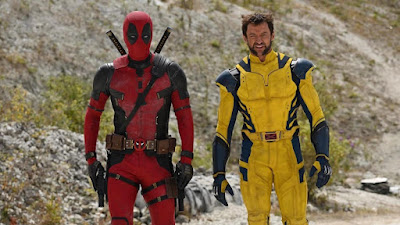Vedaa' Movie : John Abraham Stumbles, While Sharvari & Abhishek Banerjee Excel
Vedaa' Movie Review: John Abraham Stumbles, While Sharvari & Abhishek Banerjee Excel
Nikkhil Advani’s latest film, Vedaa, starring John Abraham, Sharvari Wagh, and Abhishek Banerjee, is a bold attempt to tackle the deep-seated issue of class inequality in India. However, the film’s potential is marred by an overindulgence in action sequences, detracting from its core message. While it had the makings of a significant Independence Day release, Vedaa ultimately falls short of its promise.
Vedaa attempts to shed light on the grave social issue of caste-based discrimination, particularly against Dalits, but as violence takes center stage, the narrative gets muddled. Inspired by a real event, the premise of the film is undeniably compelling. However, its execution leaves much to be desired. Though the movie manages to engage the audience, its message about Dalit rights and the fight for equality is overshadowed by gratuitous action scenes.
Nikkhil Advani’s effort to highlight the struggles of the Dalit community deserves recognition. Cinema, as one of the most powerful mediums of social change, could have used Vedaa to deliver a more impactful message. Unfortunately, John Abraham’s performance does little to elevate the film. His portrayal is predictable, with the usual muscle-flexing and action stunts that have become his trademark. It’s evident that John has not ventured beyond his comfort zone, failing to bring any new dimension to his craft.
It’s time for John Abraham to seriously reconsider his approach to acting. The industry is brimming with talented actors who are not only skilled but also open to evolving and accepting constructive criticism. In fact, this was the exact point raised by a journalist at a press conference, where John was questioned about his reluctance to explore genres beyond action. His response, labeling the journalist an ‘idiot’ and declaring that ‘journalism is dead,’ was not only uncalled for but also indicative of an actor out of touch with reality.
John’s dismissive attitude toward criticism is a clear sign of stagnation. The world of cinema is constantly evolving, and those who fail to adapt risk becoming irrelevant. Instead of focusing solely on building his physique, John needs to refine his acting skills and learn to embrace feedback. Arrogance has no place in an industry that thrives on creativity and reinvention. When actors begin to believe they are invincible, it often marks the beginning of their downfall.
Setting John’s performance aside, the true stars of Vedaa are Sharvari Wagh and Abhishek Banerjee. The first half of the film sets the stage with intensity and promises more depth in the second half. However, the film’s noble intentions are overshadowed by excessive violence. Based on true events, Vedaa seeks to expose the atrocities in Rajasthan’s cow-belt region, where inter-caste marriages are treated as criminal offenses. But the social commentary is diluted by the film’s flawed execution. The dynamics of power, the oppressive caste system, and the lawlessness that plagues rural India could have been portrayed with more nuance.
Sharvari Wagh, in particular, is a revelation. Her portrayal of Vedaa, a gutsy young Dalit woman in a small town in Rajasthan, is nothing short of brilliant. Sharvari brings depth and emotion to the character, capturing the desperation and resilience of a woman who simply wants her community to have the basic right to live freely. Her performance is a poignant reminder of the promises enshrined in the Indian Constitution, promises that remain unfulfilled for many in our society. Through her portrayal, Sharvari raises a crucial question: if our forefathers fought for equality, why does it remain so elusive for the Dalit community?
The primary flaw of Vedaa lies in its overemphasis on violence, which ultimately detracts from the very issue it seeks to address—Dalit rights. While the film successfully portrays the helplessness and courage of its protagonist, it fails to maintain focus on the social message. Abhishek Banerjee, who plays the villain, delivers a standout performance that makes him impossible to ignore. His character embodies the cruelty and bigotry that continue to oppress the marginalized, and Banerjee’s portrayal is both chilling and compelling.
Despite its flaws, Vedaa deserves some credit for at least attempting to address a subject that many filmmakers shy away from. Dalit rights are rarely explored in mainstream cinema, and Nikkhil Advani’s effort to bring this issue to the forefront is commendable. However, the film’s inability to strike a balance between action and social commentary ultimately weakens its impact.
Vedaa is not just another action drama; it’s an intense and thought-provoking film, albeit one with a flawed storyline. The narrative may stumble, but it remains engaging and raises important questions about the state of independence and equality in modern India. The film compels the audience to reflect on the true meaning of freedom—how free are we, really, if such deep-seated discrimination still exists?
In conclusion, Vedaa is a film that had the potential to be great but falls short due to its missteps in execution. While it’s far from perfect, it’s a brave attempt to tackle a difficult subject. John Abraham’s performance may disappoint, but the film’s saving grace is the stellar work of Sharvari Wagh and Abhishek Banerjee, who bring depth and authenticity to their roles. Vedaa might not be a masterpiece, but it’s a film that deserves to be seen for its boldness in addressing an issue that demands more attention.


.jpg)

Comments
Post a Comment